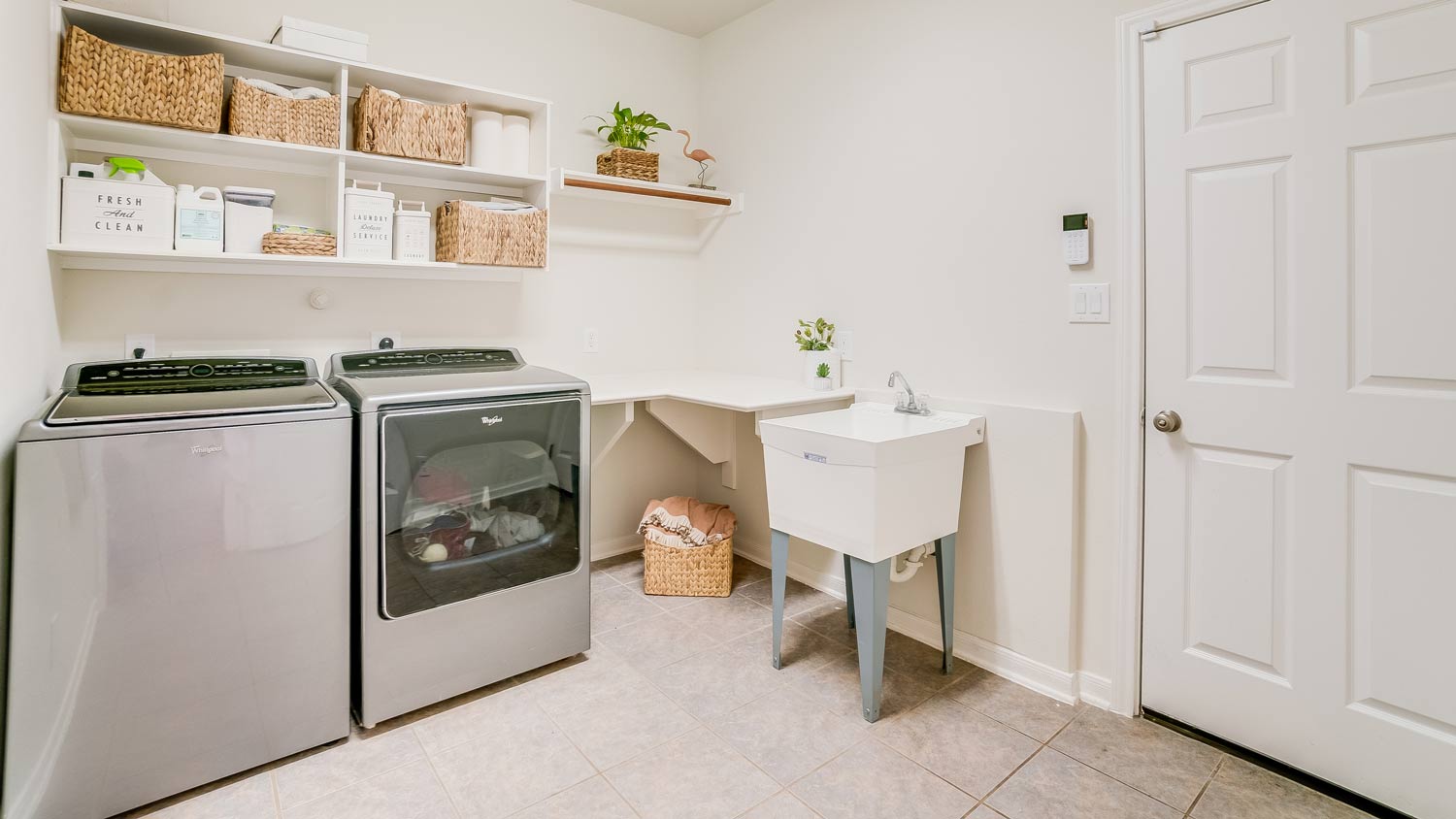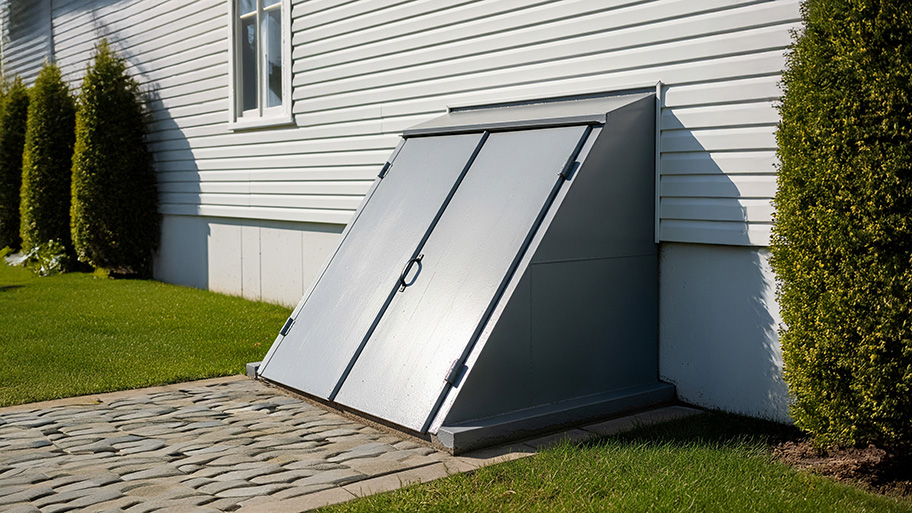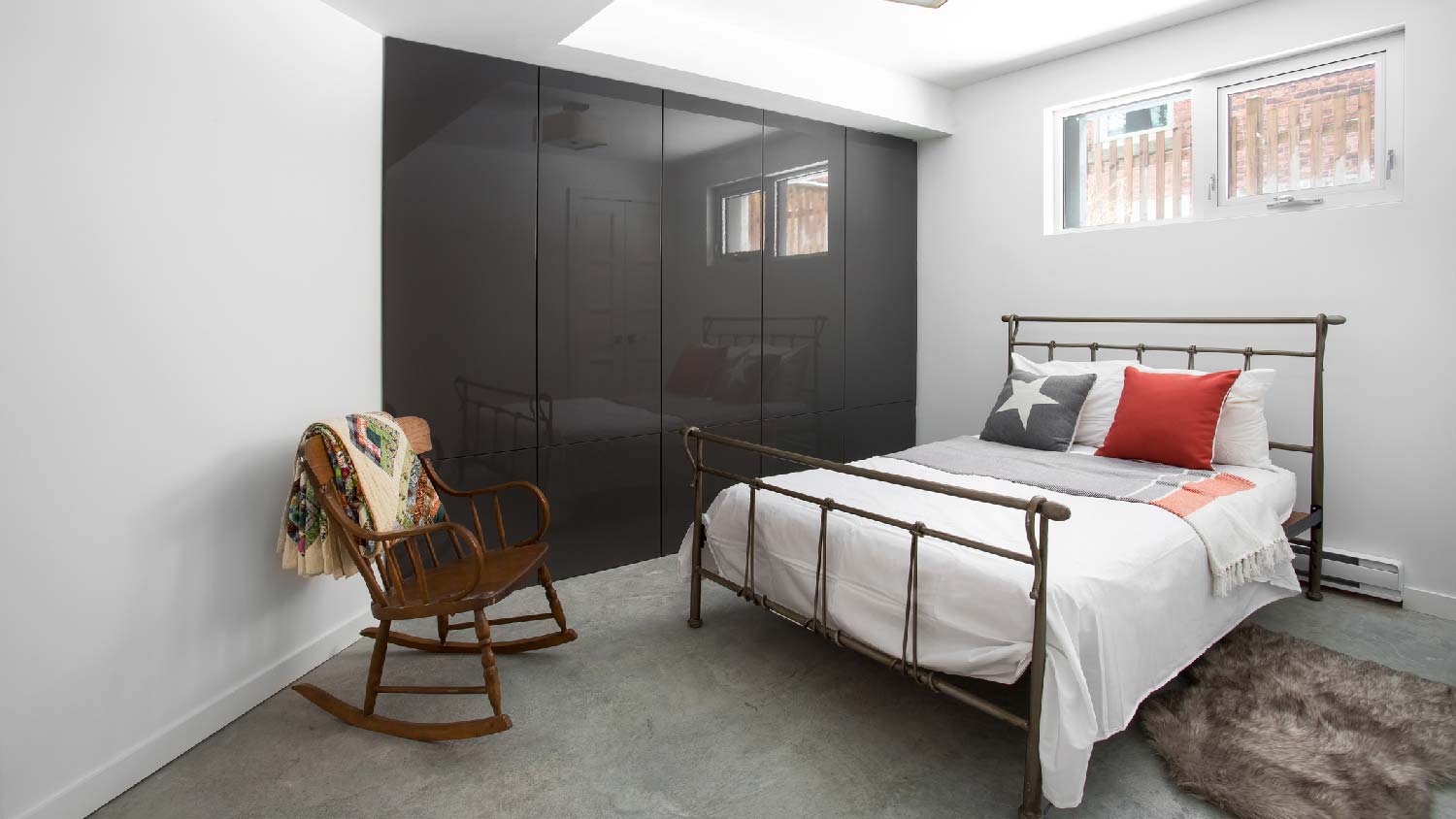
The cost of installing a wine cellar varies based on square footage, the type of wine cellar or wine cave, materials used, where it is located in the property, and where you live. Use this guide to find how much your wine cellar will cost.
Add living space and value to your home by finishing your basement
Home Value Rating: 4/5
A finished basement adds significant value—with the help of pros, it can truly stand out.
Finishing your basement can provide a 70% return on investment (ROI).
If you’re short on living space, finishing your basement is a great way to add usable square footage to your home. This project can be a major investment, but luckily, it can increase your home’s value, offering up to a 70% ROI. If you’re wondering how much a finished basement adds to home value, we break down some of the factors that affect how much it’s worth.
Finishing a basement adds valuable living space to your home, which can be an appealing feature when it comes time to sell. The value of a finished basement depends on various factors, including where you live, how the converted space is used, and the quality of the construction.
The demand for finished basements in your real estate market can significantly affect your basement’s value. In some markets, finished basements are the norm, so prospective buyers may pass on houses with unfinished basements. If finished basements are in demand but uncommon, you may be able to get a higher price for your home and a better return on your investment.
Different types of finished basements will affect your ROI. A walk-out basement with a private entrance will be valued higher than a fully below-grade basement with standard egress windows and no separate entrance.
There’s no end to basement finishing ideas, from an in-law suite to a home gym to a secondary living room. Adding a bedroom in the basement can add value, but you may see a higher return from also adding a bathroom or converting the space to a small apartment layout. A finished basement that can generate income can be a very attractive feature for buyers.
Finishing a basement is a major project, so unless you’re familiar with local finished basement building codes and can properly obtain basement finishing permits and perform the work to code as a DIY, hire a pro to finish your basement. A local basement finishing pro can convert your basement safely and up to code, identifying and remedying any potential problems. Basements need extra work for moisture remediation, ventilation, and points of egress, so it’s best to let a pro complete the work.
According to data from Angi, most homeowners are looking for input from a professional, with about 57% wanting a recommendation and 37% of homeowners wanting sketches or a basic idea for a project. Take a look at how other homeowners feel about prep for a basement remodel.
Permits can actually be quite expensive. Talk to your contractors before starting your project to understand how much the required permits will cost you.
Basements that are finished using quality materials and solid construction will offer a higher ROI. While you may hesitate to use top-quality materials in a basement, using low-quality materials will affect your basement’s value and appeal to potential buyers.
A few simple steps can help you calculate how much value finishing your basement will add to your home.
Look at your market. First, determine how in-demand finished basements are in your area and how much they affect the selling price of comparable homes near you. If a finished basement is a common feature in nearby homes, you may be hurting your selling price by leaving yours unfinished.
Estimate your costs. Get several quotes to see how much finishing your basement will cost—prices may vary due to material shortages and supply chain interruptions, so having a realistic idea of costs will help you decide if it’s a good investment.
Get an appraisal. A local appraiser can determine your home’s current value and estimate how much a finished basement will increase it.
The average cost to finish a basement is around $32,000, but can range between $15,000 and $75,000 based on the specifics of the construction. It’ll cost more to install multiple interior walls, add plumbing or electrical wiring, or remediate any moisture or ventilation issues before beginning work. With a 70% ROI, you could add an average of $22,400 to your home’s value by finishing your basement.
Deciding between a finished and an unfinished basement comes down to your budget, the local real estate market, and your need for additional living space. Finishing a basement can be worth it if the extra space will allow you to stay in your home rather than looking for something larger, or if you can generate extra income by turning it into a rentable apartment. Turning a basement into living space is a serious investment, but one that can pay off by giving you extra space and making your home more appealing to future buyers.
Home is the most important place on earth, which is why Angi has helped more than 150 million homeowners transform their houses into homes they adore. To help homeowners maximize the value of their investments, we gather ROI data from reputable sources, including industry reports, real estate studies, and interviews with market experts. We calculate the average resale value for projects by multiplying the ROI against the project’s average cost according to our cost data, which is sourced from thousands of real Angi customers.
Want to help us improve our data? Send us a recent project quote or home appraisal value to [email protected]. Quotes and personal information will not be shared publicly.
From average costs to expert advice, get all the answers you need to get your job done.

The cost of installing a wine cellar varies based on square footage, the type of wine cellar or wine cave, materials used, where it is located in the property, and where you live. Use this guide to find how much your wine cellar will cost.

Discover the cost to finish a basement laundry room. Learn about average prices, key cost factors, and tips to budget your basement laundry remodel.

When storm season is approaching, ensure you’re ready to go in case of an emergency. Explore our guide to budgeting for bulkhead replacement costs.

Considering converting that unused basement to living space? Learn whether adding a bedroom in the basement adds value and what factors affect your ROI.

Thinking of finishing your basement? Before you do, learn about when permits are required and what happens if you don’t get one before beginning construction.

Hiring a bad basement remodeler can wreak havoc on the look and longevity of your unfinished space. Here are red flags to look for as you vet basement contractors.